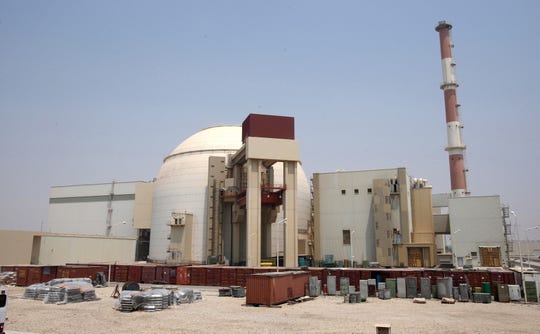
USA TODAY
Disclaimer: USA Today has partnered with AllSides and other bridging organizations, such as America Talks, to promote and support conversation events in which people on the left and right come together to bridge divides. This is work AllSides applauds and is a part of. This media bias rating page serves purely as an analysis of the bias of USA Today's news reporting; AllSides' bias analysis is independent, and partnerships with USA Today did not impact news bias analysis.
USA Today has published articles about AllSides' work, including:
USA Today has also published op-eds written by AllSides staff, including:
- Here's how technology can help reduce political polarization (Jan. 2020, CEO John Gable and Head Editor Henry A. Brechter)
- Political incivility is at crisis point in America. Here's how we can fix it (Nov. 2020, Brechter and COO Stephanie Bond).
- What Bruce Springsteen's Super Bowl ad gets right about reuniting Americans in 'the middle (Feb. 2021, Brechter)
Iran's President Hassan Rouhani issued a fresh ultimatum Wednesday over its civilian-use nuclear program, saying the country would on Sunday "take the next step" toward increasing its enrichment of uranium unless European powers are able to find a way to offset the impact of the Trump administration's sanctions on its economy.
Earlier this week, the International Atomic Energy Agency, the United Nations' nuclear watchdog, confirmed Iran passed the limit on its stockpile of low-enriched uranium by exceeding the 300kg (661 pounds) that was set in a landmark 2015 nuclear deal made with world powers. President Donald Trump has pulled the U.S. out of that agreement.
The higher-level enrichment Rouhani said will commence July 7 is still far off the levels Iran would need to produce weapons-grade nuclear materials, but it narrows the time it would take to make a nuclear bomb – something Iran says it does not want to do.
Speaking during a Cabinet meeting in Tehran on Wednesday, Rouhani warned that because of the faltering nuclear deal Iran was entitled to increase its enrichment of uranium to "any amount that we want, any amount that is required."
Under the current terms of the nuclear deal negotiated by former President Barack Obama, Iran is not allowed to enrich uranium above 3.67%, a level that is sufficient to operate its nuclear power plants, but falls below weapons-grade levels of about 90%.
"What does it mean that Iran has technically breached one of the limits of the historic anti-nuclear deal? It is not a sprint to a bomb. They are a long way away," Joseph Cirincione, president of Ploughshares Fund, a San Francisco-headquartered global security foundation, wrote on Twitter on Monday as part of a lengthy thread that explains how much enriched uranium is required to produce a nuclear bomb.










